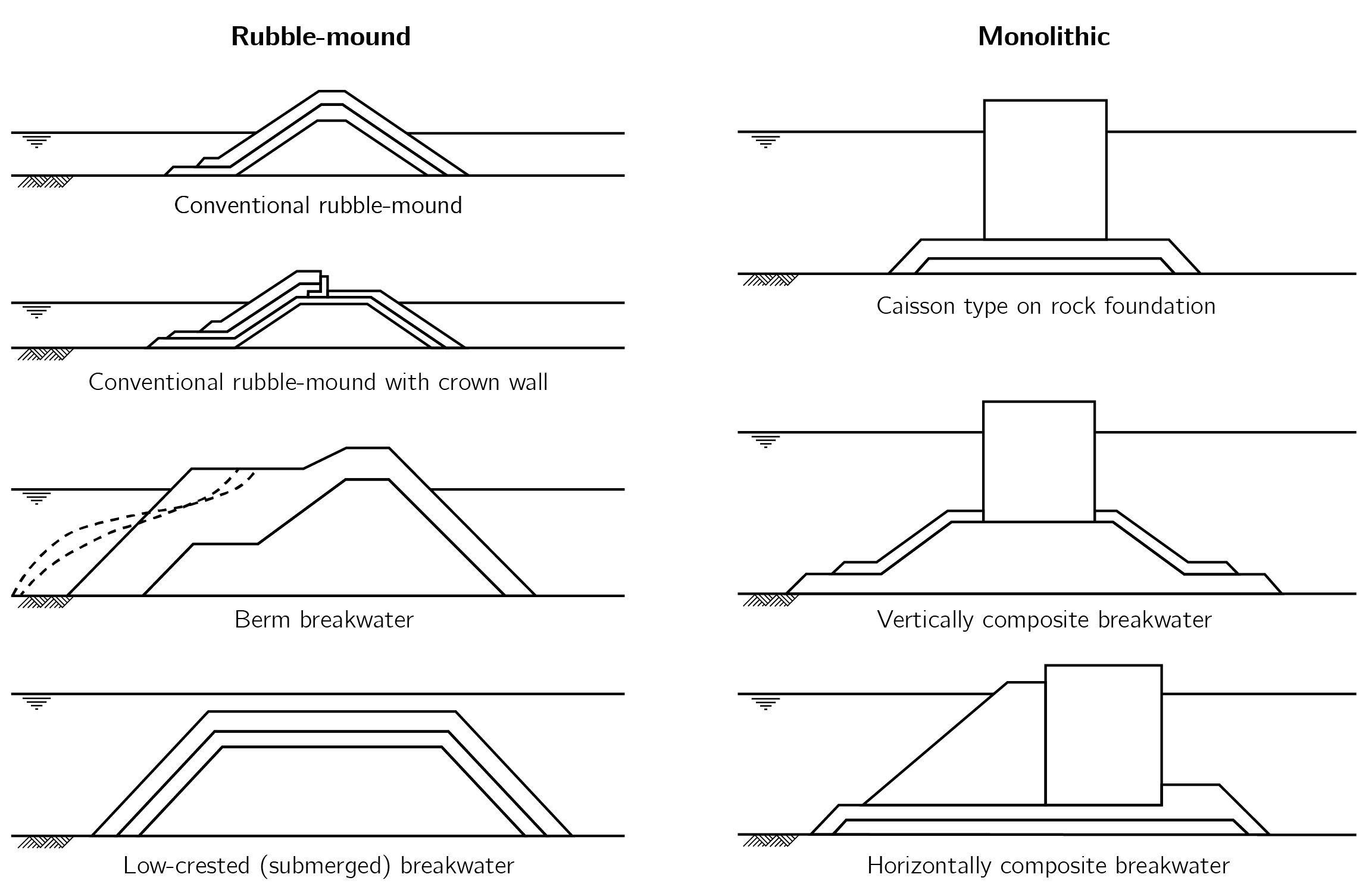| Date | July 2020 |
| Author | Sander Winkel |
| Contact | [email protected] |
| Master Thesis | Developing a design automation tool for the conceptual design of breakwaters |
| Documentation | https://breakwater.readthedocs.io/ |
| License | CC-BY-NC-SA 4.0 |
The main goal of breakwater is to support the designer in exploring different
types of breakwaters, see Figure 1.1 for a cross section of the breakwater
types defined by CIRIA, CUR, CETMEF (2007). The main use case is thus to make a
conceptual design of a breakwater using one of the design classes, see Chapter 7
of the documentation. However, because all functions and classes are also available
from breakwater.core it is also possible to develop your own design automation
script.
Due to the limited time not all breakwater types defined by CIRIA, CUR, CETMEF (2007) could be implemented. Currently only the following structures have been implemented: conventional rubble mound breakwaters with rock and armour units as armour layer, caisson breakwaters and vertically composite breakwaters.
breakwater offers the following features to support the designer:
- Design a rubble mound breakwater with rock or concrete armour units as armour
layer, with
bw.RockRubbleMoundorbw.ConcreteRubbleMound. - Design a vertical or vertically composite breakwater with
bw.Caisson. - Design with an interactive design application by using
bw.interactive_design. With this application several parameters can be changed with sliders, to assess the influence of certain parameters on the design and cost. - Design multiple breakwaters at ones by using
bw.Configurations. With this class multiple breakwater types can be designed at ones, these concepts can than be assess by using a multi-criteria analysis or with the DesignExplorer. - Use the functions and classes from
breakwater.coreto create your own design automation approach.breakwater.coreconsist of all functions and classes defined in Chapters 8 to 11.
The latest released version is available at the Python package index
pip install breakwaterAlternatively, the source code can be downloaded, or cloned, from the GitHub repository.
python setup.py installA tutorial of breakwater can be found in Chapter 3 of the documentation. This documentation also provides a full overview of the implemented failure mechanisms, and is thus a full overview of all features of breakwater.

